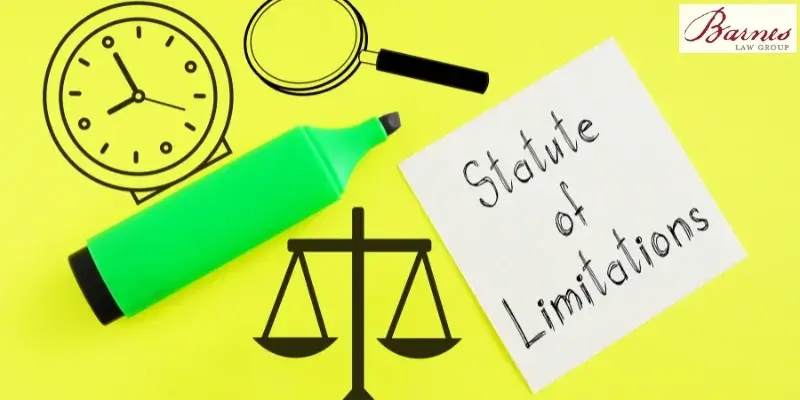Georgia Personal Injury Statute of Limitations

Navigating the process of pursuing a legal claim after a personal injury can be confusing, especially when it concerns the statute of limitations in Georgia. The Georgia personal injury statute of limitations establishes the maximum period following an incident within which legal procedures may be initiated against someone who has injured you. Failing to file within this timeframe can result in you losing your right to compensation, even if you have a strong case.
Georgia Statute of Limitations for Personal Injury
Georgia’s statute of limitations for personal injury claims is two years. This means that you have two years from the date of your injury to launch a case. Failure to do so within this time range usually prevents you from being able to seek compensation through the legal system.
Key Points to Consider
There are several key points to consider when determining how to pursue your claim in Georgia. These include:
- Victim’s Age: If the injured individual is a minor, the statute of limitations is suspended until they become 18. They then have two years after their 18th birthday to initiate a personal injury case. However, the statute of limitations for a parent’s claim for medical expenses remains two years from the date of the injury.
- Government Claims: If your harm was caused by a government body or employee, other regulations apply. Claims against municipal or county governments must be filed within six months, and claims against the state of Georgia must be filed within one year.
- Tolling of the Statute: Certain circumstances can “toll” or suspend the statute of limitations. For example, if a defendant commits fraud, if the wounded person is mentally incompetent, or if the defendant leaves the state, the clock can be temporarily paused.
The Importance of Punctuality
It is critical to file your claim before the statute of limitations expires for multiple reasons. If you fail to submit your claim by the due date, you can no longer seek compensation. Some examples of why punctuality is so critical include:
- Preservation of Evidence: Over time, evidence might deteriorate or disappear. Filing immediately guarantees that critical evidence is preserved.
- Witness Availability: As witnesses’ recollections decline, they may become unreliable over time. Early filing raises the likelihood that witnesses will deliver accurate testimony.
- Legal Strategy: Consulting a personal injury attorney early on can help you build a strong legal strategy that takes into account and addresses all the areas of your case.
- Court’s Perception: Filing your claim within the specified timeframe shows the court that you are conscientious and committed to obtaining justice and recompense for your injuries.
- Financial Relief: Early filing can speed up the legal procedure, perhaps resulting in faster financial relief to cover medical bills, missed earnings, and other losses.
Understanding Tolling and Extensions
In some cases, Georgia’s statute of limitations can be tolled or extended, allowing more time to file a personal injury claim. Tolling can arise for a variety of reasons, including fraud, the injured victim being a juvenile, the plaintiff being mentally handicapped, or the defendant having left the state. In some instances, the statute of limitations clock may be paused until the condition causing the tolling has been resolved.
FAQs
Q: What Is the Personal Injury Law in Georgia?
A: In Georgia, personal injury law refers to the legal guidelines and practices that enable an injured individual to get compensation from the liable party. This legislation addresses several kinds of injuries resulting from carelessness, including product liability, premises liability, and auto accidents. The law specifies the time restrictions for acting legally, the methods for suing, and the computation of damages.
Q: How Long Can You Wait to Sue Someone in Georgia?
A: Typically, in Georgia, you have two years from the date of the injury to file a personal injury claim. There are, however, exceptions to this rule. Claims against government bodies also have shorter filing deadlines. Furthermore, until a minor turns 18, the statute of limitations is tolled for their case.
Q: What Should I Do If I Miss the Filing Deadline for My Personal Injury Claim in Georgia?
A: If you miss the filing deadline for your personal injury claim in Georgia, you will generally lose your right to sue for damages. However, there may be exceptions or specific circumstances where the statute of limitations can be extended. It is crucial to consult an experienced personal injury attorney as soon as possible to explore any possible legal options or exceptions that may apply to your case.
Q: Does Georgia’s Statute of Limitations Have Any Exclusions?
A: Yes, there are situations where the Georgia statute of limitations does not apply. For example, a minor has two years from the date of their eighteenth birthday to submit a claim because the statute of limitations is tolled until that age.
Contact a Georgia Personal Injury Lawyer
While it may be difficult to navigate the intricacies of Georgia’s personal injury statute of limitations, it is imperative that you understand these regulations to protect your legal rights. Please act promptly to ensure that your claim gets filed within the appropriate timeframe if you or a loved one has been injured.
Maximizing your likelihood of getting the compensation you are entitled to is possible by consulting an experienced personal injury attorney. Please reach out to our Georgia personal injury attorneys at Barnes Law Group for more comprehensive information or personalized guidance.

Request A Consultation
Phone: 770.BARNES LAW (227-6375)
FILL OUT THE BELOW FORM TO REQUEST A FREE CASE EVALUATION
Fields Marked With An ” *” Are Required


